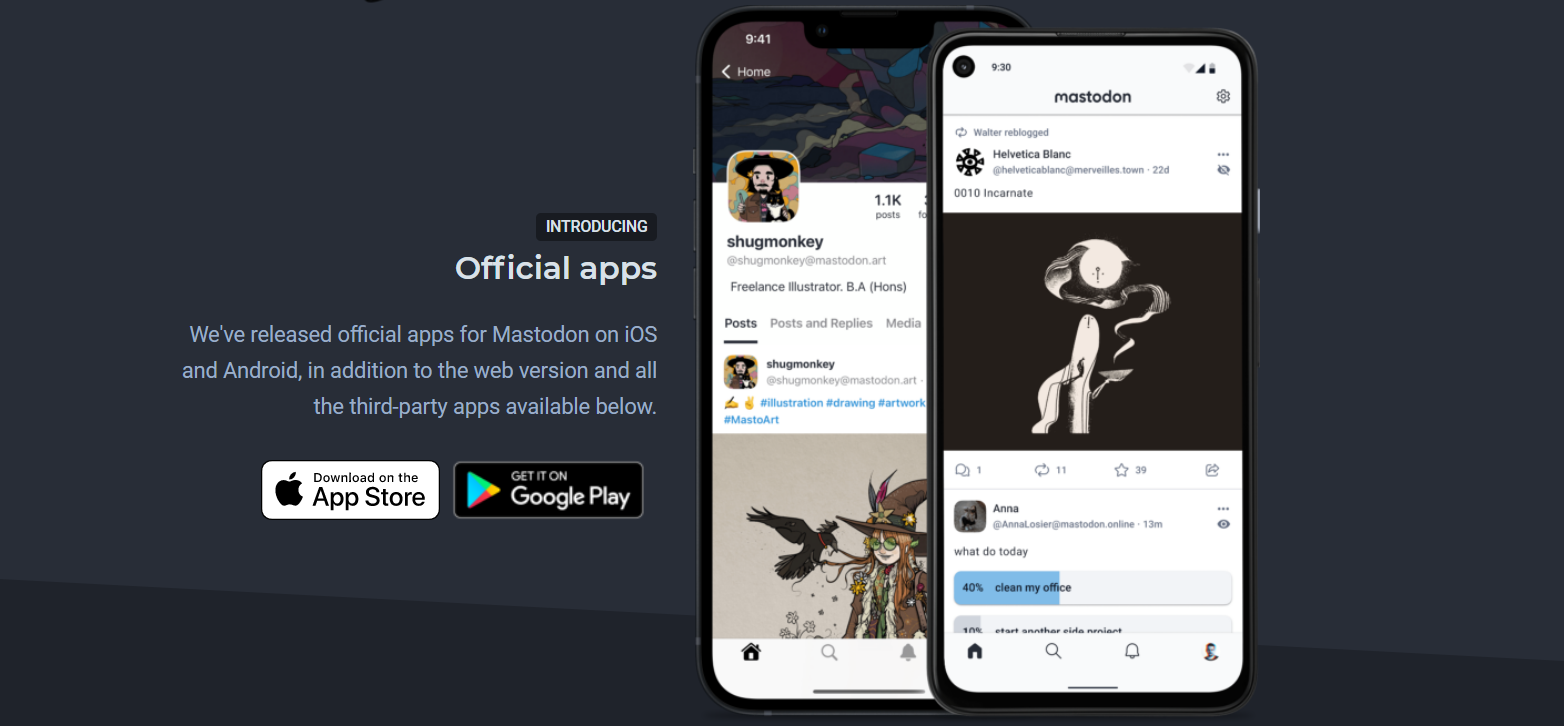This app has been designed to work in a decentralized way through a federation of independent servers.
Mastodon has been one of the best alternatives to corporate social networks in recent years, with its decentralized design and open protocols. The platform launched its own iOS app last year and there is now an Android app available in the Google Play Store. Mastodon is more than a social network, it is a revolutionary platform that already has an estimated user base of 4.4 million people and a usability design very similar to Twitter.
The feature that makes it more interesting is decentralization, a concept we are already used to in cryptocurrencies or NFTs, but precisely what makes Mastodon not a social network as such. The platform’s main function is to connect different communities and in turn, each community is completely independent in terms of server and community rules. It has a very simple user interface with a lot of white space and no advertising.
The back-end works a bit like email: anyone who registers in one community (server) can follow and talk to anyone in any other community, just like someone with a Gmail account can send messages to a Yahoo email, and vice versa. As we say, there is no centralized database or platform that collects data, no algorithmic timelines. The protocol that drives it all, ActivityPub, is open source and has been implemented by other social networks. For example, Mastodon users can follow people on PixelFed, an Instagram alternative that supports ActivityPub.
As for privacy, all Mastodon communities have their own privacy policies. In general, the communities do not require users to share personally identifiable data. There may be some exceptions. When registering on a server, users can see what the platform looks like based on their preferences and requirements. Each community sets its own rules, and users can block and mute users who do not comply with their rules.
In short, this concept of a social platform paves the way for freedom of expression for users who, while using it, can abide by the community rules that the chosen community in question provides for. The user chooses and accepts the rules of the community to which he/she subscribes, otherwise he/she will be banned. This is not the first time, far from it, that the decentralization of users on the Internet has been advocated, but the triumph of Mastodon materializes all these aspirations for the liberalization of virtual communities.




